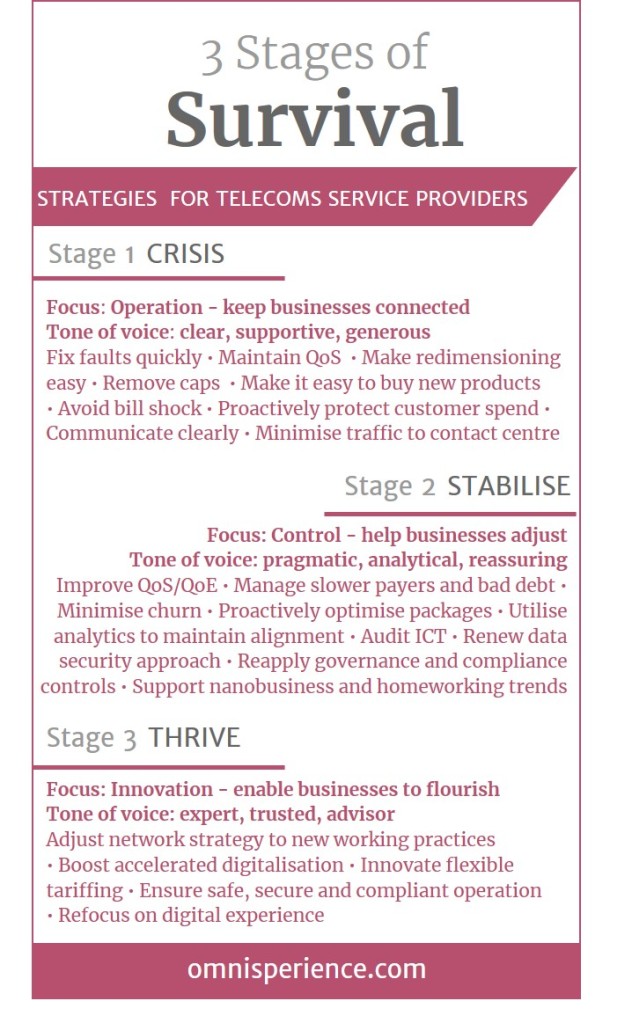As we move into the stabilisation phase of the COVID-19 response, talk has turned to the so-called New Normal. But Omnisperience argues that the New Normal is really just a more advanced stage of digitalisation and the most new, and virtually the only unexpected, thing that is happening is that digitalisation has accelerated. This acceleration has not just challenged previous thinking about work, it has obsoleted it.
2019 advice is obsolete
While column inches were previously full of persuasive arguments about why digitalisation was an evolution not a revolution, that advice has now been obsoleted by the events of 2020. The revolution has happened. All that remains is to understand what the lasting effects are, to pick up the pieces, and to carry on from the New Normal starting point.
Make no mistake, how you dust yourself off in the stabilisation phase will be critical to how you run, and whether you win, the innovation race that is set to follow.

But since 2019 advice on what to do and what to expect is now obsolete, where does that leave us?
Work is an activity not a place
One of the most fundamental discussions every business leader should be having today is: what does ‘work’ actually mean?
For too long, we have approached work as though it is a noun. An office. A building. A factory. A desk.
In fact, work is far more dynamic than that – it is a doing word (as teachers tell children). It is a verb.
By understanding that work is a verb, it frees up thinking from being location-centric. It makes you recognise that the future of work is distributed, mobile, dynamic, flexible and changeable. It makes you focus on how we improve the ‘doing’ of work – the vast range of activities that humans and their augmented selves (AIs, robots, exoskeletons, UAVs etc) will undertake in future. It helps you think about not only how we make work more effective, but also how we make it more people-centred rather than the abstract of organisational effectiveness.
Organisations are nouns. But the activity of the organisation is undertaken, directed and is delivered to benefit people. For too long the abstraction of ‘organisation’ has stood in the way of people-centric goals such as personalisation, working style and improved mental and physical health.
People centricity is the New Normal
Being customer centric is no longer enough in the New Normal. Organisations now have to become people centric – incorporating the needs of all the people who buy from the organisation, work with and for the organisation.
Work is about people: workers are people, customers are people and shareholders are people. Putting people back at the centre of work focuses senior managers on the right way of unpicking what has just happened and how they plan the most effective way forward.
- Workers want more home-life balance and more flexibility.
- The home has evolved into a critical work hub.
- Business will become more mobile and more distributed.
- The focus (KPI) will change from presence to effectiveness.
- Working hours will change to suit people and to accommodate the always-on digital culture.
- Customers expect organisations to operate as effectively online as they do in their bricks-and-mortar operations. Omnichannel is the New Norm.
- The office is set to become an open, creative, social hub rather than a dark satanic mill filled with banks of desks and stressed out employees.
- Being nice to your customers is essential but no longer enough. Customers will increasingly view you through the lens of how you treat your employees. Meeting both sets of goals means you need to be people-centric and not just customer-centric.
- Your ICT needs to support people-centric goals. This means support for flexible work modes, focusing on effectiveness not on presenteeism, and connecting, securing and supporting your people wherever they are.
